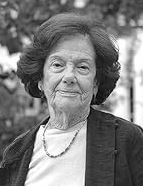

Shortly afterwards, in 1971, she published her book Livre-Câmbio e desenvolvimento económico Portugal na segunda metade do século XIX (Free Exchange and Economic Development in Portugal in the Second Half of the 19th Century) in Portugal, with Editora Cosmos, a translation of the thesis she defended in Paris. The book dealt with the rural world and the agrarian economy from the perspective of economic development problems and was clearly innovative, both in terms of the issues addressed and the methodology used, in line with the then recent French economic and social history. A book with such characteristics and written by a , could only have a major impact on Portuguese academic circles, which, even in the final years of the Estado Novo, remained fairly closed and unaccustomed to innovation. The fact that it dealt with the history of the 1800s, a period so forgotten and ignored by that regime, also weighed heavily on its impact. Due to the various disciplines it covered, the work was not only used by historians, but also by economists, agronomists and geographers, and was included in the bibliographies of university courses for several years. At the time, the publication was reported and commented on in journals and newspapers by historians and non-historians alike, even giving rise to more in-depth debates, such as the one that took place with law professor Vital Moreira in the pages of Vértice journal.
In 1972, she returned to Portugal and, at the invitation of Professor Adérito Sedas Nunes, began teaching at the newly created ISCTE in 1973. Sedas Nunes had previously invited her to publish an article in Análise Social, which was the first to be published in the country and was the first chapter of her book. At ISCTE, she surrounded herself with a small team of teachers and researchers, focusing on promoting the teaching of history at the institute and helping to extend it as a compulsory subject in the new degree courses that were being created in addition to those already existing: Labour Sciences (later Sociology) and Business Management, in which history was already being taught, demonstrating the interdisciplinary dynamic that ISCTE had sought to instil since its foundation. At the time, the future degree in Modern and Contemporary History had not yet been created.
This work is financed by national funds through FCT - Foundation for Science and Technology, I.P, in the scope of the projects UIDB/04311/2020 and UIDP/04311/2020.
